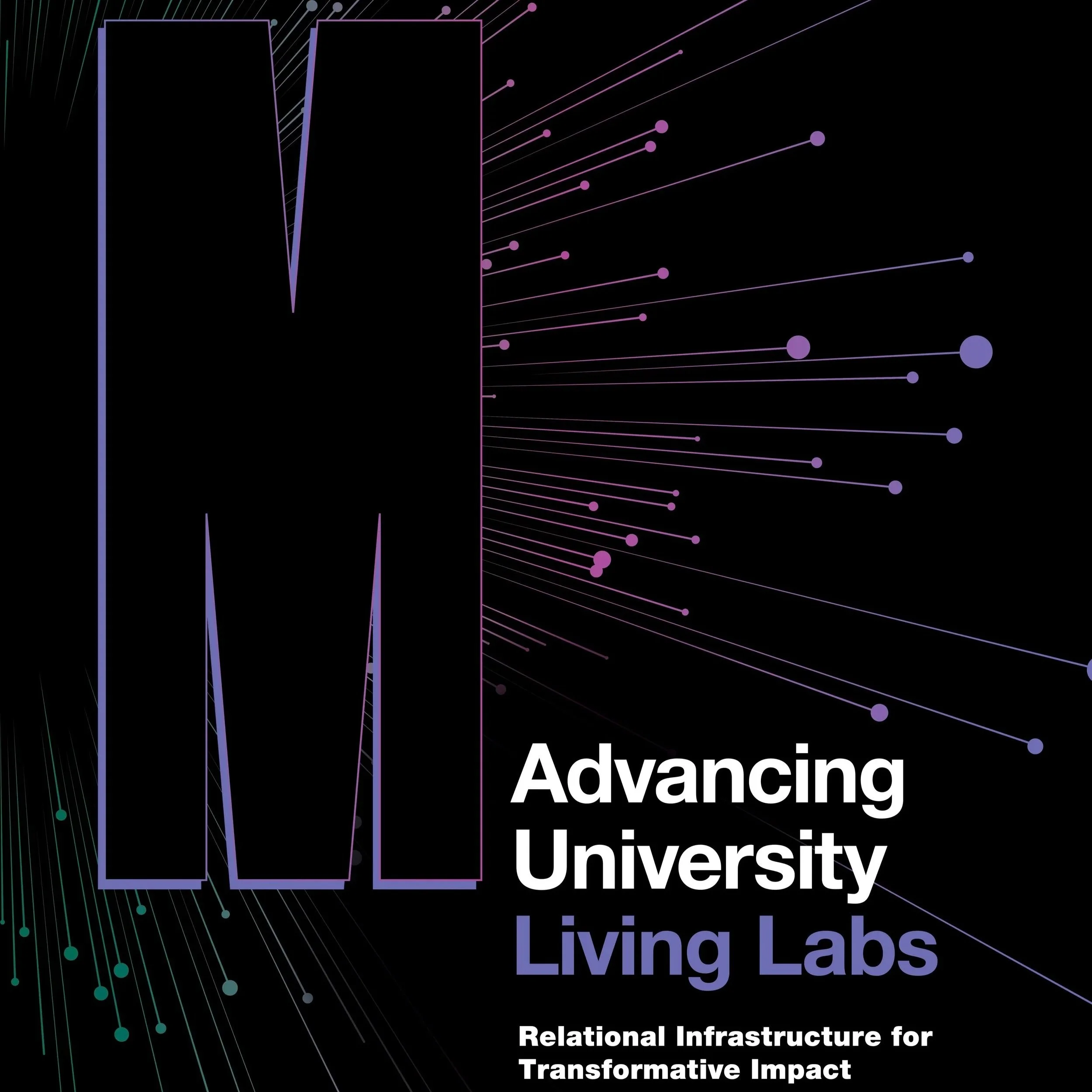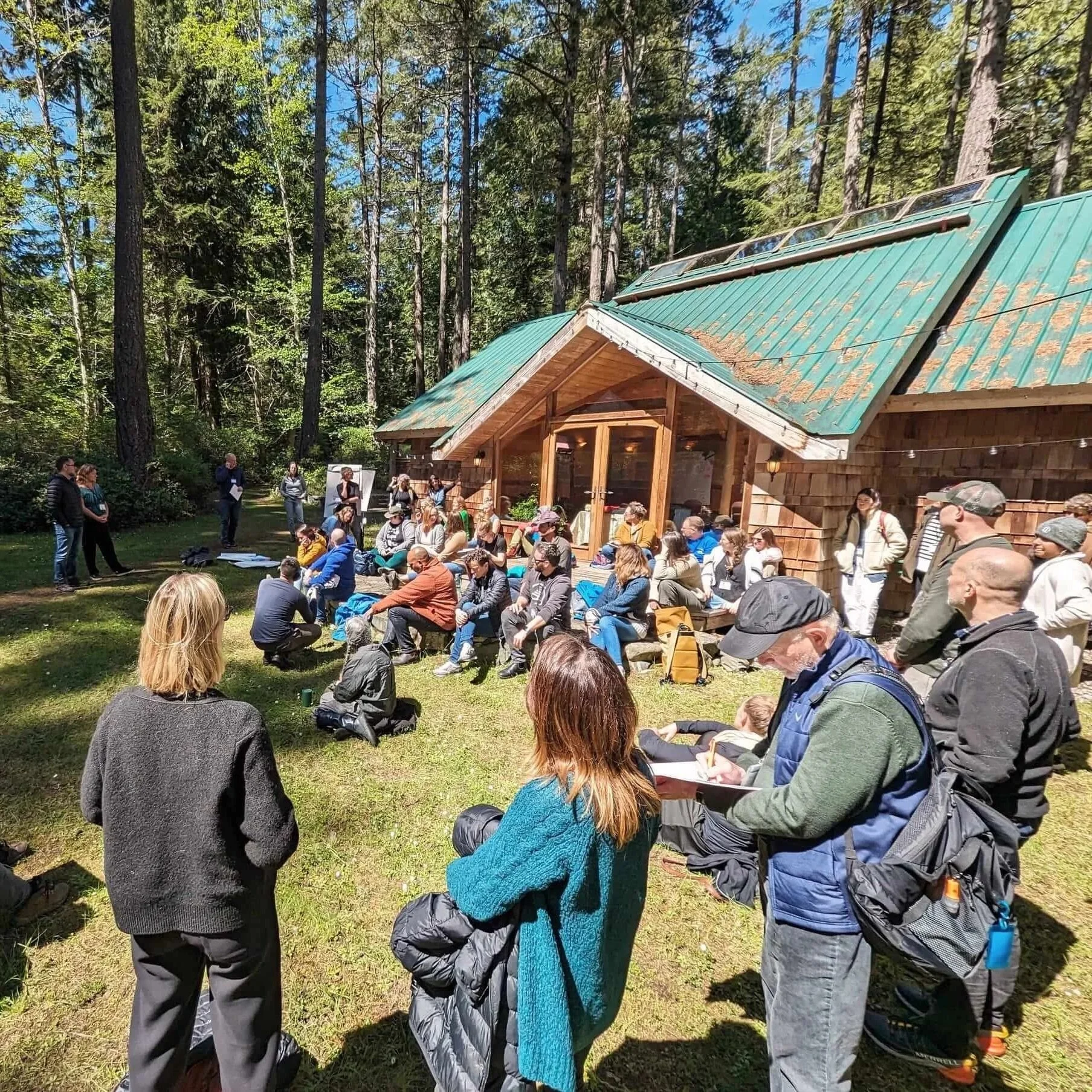What We’re Learning
The Future of Labs is organized around five core streams of inquiry. Below we summarize each stream as well as share past and current work Lab practitioners across Canada are doing to contribute to each. See a link between your work and a stream? Contact us at actionlab@skillssociety.ca about featuring your work on the website in a blog post.
Stream #1: Defining Labs
This stream of inquiry explores the central question: What do we mean by Social Innovation Labs? Social Innovation Labs can’t be everything and there can’t be ‘one version’. But we also need some shared understanding when talking about Labs to support collaboration. The purpose of converging on a working definition of Social Innovation Labs is not to establish a rigid, set standard, but rather to try and understand the unique and shared attributes of this specific approach to change making - a definition that is inclusive of Labs' many variations and expressions.
Our working definition of Labs for practitioners that has been co-created with practitioners from across Canada is:
Social Innovation Labs hold space for diverse change-makers to sense-make, generate, develop, and test a portfolio of promising solutions to address complex societal challenges in a way that is collaborative, experimental, iterative, and systemic.
We think the Minimum Core Attributes of a Lab are:
Focused on complex societal challenges
Learns from diverse perspectives from across a system, including those with lived experience
Explores collaborative ways of working on a shared complex challenge
Systemic in thinking and action
Experimental in iteratively developing and testing possible solutions, ideally in real life and at a minimum in realistic settings
Aim at exploring root causes of complex challenges and then generating possible solutions and pathways from leverage points
During the Future of Labs gathering we recognized that our definition is really for practitioners and is not necessarily accessible and approachable for funders or others trying to understand social innovation. That’s why one of the recommendations coming out of the gathering is to create, with input from funders and other community members, a simple definition that is more relatable to those outside the social innovation field.
Our working definition of Labs for funders, policy makers, and community:
A Social Innovation Lab has unique collaborative problem solving processes that help get to better solutions to a complex social challenge facing society. What makes a Lab approach unique and valuable:
In typical problem solving, a system might just ask for solutions that are economically viable. With that approach it will be hard to tell if you’re funding band-aid solutions at best or funding unintended harmful solutions at worst
What Labs aim to do is uproot assumptions through learning from diverse perspectives on a complex problem and asking what might help. Good Labs involve rigorous literature reviews, centering and learning from lived experience, searching out new perspectives on the problem and engaging creative ways of both looking at a problem and generating ideas to test out.
When trying to find innovations, most people and systems can’t really see in new ways because we’re too caught in patterns and habits from our past experiences. Labs can help to uncover fresh perspectives grounded in deep learning and historical contexts.
Labs don’t just talk about ideas around a table. They get people to show ideas in prototypes. This helps to see assumptions better and test ideas more thoroughly before investing in expensive roll outs. That is of big value.
The fresh insights, deep learning and framing of problems to be solved in a tough social or environmental challenge is part of the unique value of Labs.
Current Work Happening On this Stream of Inquiry in Canada and Abroad
See an intersection between your work and this stream of inquiry? Contact us at actionlab@skillssociety.ca to chat about featuring your work in a blog post!
Stream #2: Situating Labs Amongst Other Change Approaches
This stream of inquiry explores the following core question: What are Labs’ unique contributions to social change? And when is a Lab the best approach to use? Social change, innovation, and transformation require multiple types of change strategies, such as policy advocacy and activism, community organising, multi-stakeholder engagement strategies, and social entrepreneurship. With a variety of social change approaches, each with its own unique strengths, limitations, and contributions, we think it can be helpful to explore the ‘niche’ for Labs amongst them. How do Labs distinguish themselves from other social change approaches? Under what conditions is a Lab approach appropriate and when might other social change approaches be better?
Based on our learning so far we think Labs can be helpful in the following situations:
When you have a system or collective who are tired of the status quo and desire creative, inclusive, collaborative ways of both looking at challenges and generating pathways forward. If you have that, then you might want to consider covening a lab
When you have a willingness in a system or community to let a lab explore and experiment with reframing challenges and what core problems need to be solved. If you have that, then you might want to consider covening a lab
When you have the possibility of all lab participants being willing to agree to some common principles of engagement. Principles where participants make space for treating everyone in the lab with respect, dignity and a willingness to be open to truly diverse perspectives- perspectives that might clash with one’s personal values and beliefs. If you have that, then you might want to consider covening a lab
When you have the resources and time to do the often slower, relational trust building within a lab. If there is no trust built and simply transactional workshops, then it is unlikely a lab will get to the transformational insights, and creative ideas. If you have time for this, then you might want to consider covening a lab
When you have incumbents willing to not just fund, but engage appropriately in the lab learning journey. This helps for understanding when challenges to a system are reframed in labs in order to go beyond band-aid solutions. If you have that, then you might want to consider covening a lab
When you have a system and/or community willing to explore and acknowledge the distinctions between long game transformational system change and bending or innovating within current systems to be better. If you have that, then you might want to consider covening a lab
When you have a lab collective willing to both explore de-constructing power and systems and also willing to be bold to switch to generating alternative futures, bold co-created prototypes and new future possibilities. If you have that, then you might want to consider covening a lab
When you have a system and lab collective willing to explore at the outset of a lab what is reasonable to expect from a lab and whether there are unspoken hopes for total paradigm shifts or more pragmatic service and system innovations. If you have that, then you might want to consider covening a lab
If you had national missions to tackle a few well defined and complex social challenges and an openness to invest in experimental problem solving where labs are one approach of many, then you might want to consider covening a lab or lab(s)
On the other hand, Labs might NOT be helpful when:
When you have an immediate, polarizing political issue that demands diverse community engagement, a clear strategy within a short time period and needs to fit cleanly at the end within existing systems. If you have that, then you might NOT want to consider covening a lab
When you have time, and resources, but an unwillingness in the lab collective to hold to common principles of engagement that supports dignity, respect, trust, and being in good relationship with each other. Or when participants want to use a lab to simply advocate for a rigid perspective without being open to others. If you have that, then you might NOT want to consider covening a lab
When a system or collective wants cool facilitation to come up with a traditional strategic plan for an organization. Strategy can be built better through many lab tools, but it’s not a social innovation lab if just wanting facilitation of a strategic plan. If you have that, then you might NOT want to consider covening a lab
When a lab stewardship team is not clear on the distinctions between critical social justice change making and generative design and social innovation approaches to change making. If you have that, then you might NOT want to consider covening a lab
Current Work Happening On this Stream of Inquiry in Canada and Abroad
See an intersection between your work and this stream of inquiry? Contact us at actionlab@skillssociety.ca to chat about featuring your work in a blog post!
Stream #3: What’s Reasonable to Expect from Labs?
This stream of inquiry explores the following core question: What is reasonable to expect about the scale, pace, and durability of Lab results? When asking what is reasonable to expect from Labs, the reality is, we really don’t know. Unsurprisingly, our expectations often surpass the reality of what it truly takes to make progress on complex challenges. We want to see if we can do this better so as to better manage expectations by everyone involved and design better Labs.
Some working conclusions that came out of the first practitioner gathering related to this stream of inquiry are:
Promote the capacity of Labs to generate multiple results: Labs are like ‘Swiss army knives’ able to increase citizen agency, strengthen community connections, develop, test, and (help) implement systemic innovations that have an impact on complex societal challenges. This ability to ‘multi-solve’ should be celebrated and multiple outcomes made clear in the design, funding, evaluation, and communication of Lab results.
Encourage variation, not one-size-fits-all, Lab approaches and results: While all Lab practitioners and initiatives appear to share a commitment to participatory, systemic, and experimental approaches, they vary in which types of change they seek to make because they address different challenges, operate from diverse orientations to change, and exist in unique contexts (e.g., cultural, institutions, geographic, etc.).
Be clear about the suitability of ‘scaling’ in each individual Lab: Lab stakeholders – including facilitators, participants, funders, and other stakeholders – should decide whether scaling is or is not a prominent feature of their Lab initiative after making sure that they’ve considered the strengths and limitations of scaling and not scaling.
Manage expectations about Lab results based on enabling conditions: Labs do not operate in a vacuum. Their design, implementation, and results depend on a variety of enabling conditions (e.g., adequate funding, the complexity of the issue, participants involved). These conditions should be considered when (1) developing and funding Labs and (2) evaluating, reporting, and communicating the results so that Lab participants can operate with high ambitions for change and realistic expectations about what is likely and possible from any given Lab initiative.
Stream #4: Helpful Lab Practices
This stream of inquiry explores the central question: What are the capabilities, mindsets, methods, and skills needed to design, manage, and evaluate high quality Social Innovation Labs? As we look to collectively vision and offer possible next practices for the field, we feel it’s important to reflect on and name the practices and processes that support meaningful and impactful Labs. What capabilities are ‘core’ to Labs, what are important and relational, and what are deeply situational/context specific? What do Labs and Lab practitioners need to get substantially better at in the next 5-10 years?
During the 2024 gathering, conversations revealed a shared vision for the future of Social Innovation Labs, characterized by several emerging practices:
Stronger Scaling Capabilities: Building the necessary skills and strategies to scale impactful solutions in collaboration with allied movements.
Deeper Value Propositions: Ensuring clearer value to incumbents, funders, participants, and communities, rooted in tangible benefits and shared outcomes.
Commitment to Decolonization: Fully integrating equitable, inclusive, and decolonized practices into every aspect of Lab work.
Enhanced Knowledge Mobilization: Continuously improving the ways knowledge is captured, shared, and mobilized to create lasting change.
As part of this work we also hope to build a small granting program that can support individual practitioners and Labs interested in exploring experimental methods and tools that can enhance our capacity to deliver high quality Social Innovation processes. See our grants page for more information on this.
Current Work Happening On this Stream of Inquiry in Canada and Abroad
See an intersection between your work and this stream of inquiry? Contact us at actionlab@skillssociety.ca to chat about featuring your work in a blog post!
Stream #5: Conditions and Supporting Ecosystem for Labs
This stream of inquiry explores the central question: What kind of ecosystem do we need to ensure that the Lab movement, and individual Labs, can thrive in Canada? As practitioners we understand that Labs have a place in a larger ecosystem of systems change. How might we articulate a pathway to better resource and deepen the Lab field; and identify synergies and pathways through policy, finance, culture, supports, markets and skills development, to how our collective efforts can contribute to positive system change? Where are we now with this type of ecosystem? What are the things we need to do next?
Some ideas and projects we are exploring related to this stream of inquiry include:
Articulating the value proposition of Labs: Labs lack public recognition, and therefore need to be thinking about how Labs are easily identified as an integral part of the mainstream innovation ecosystem. A more robust and coordinated marketing and value proposition strategy for Labs could not only support the placement of Labs as a visible and essential part of Canada’s broader innovation ecosystem and culture, but also facilitate talent recruitment and create new funding opportunities.
Expanding entry points into the Labs field: There is a need for the Labs community to look at different entry points for becoming a Lab practitioner, and developing strategies for cultivating a broader, inclusive talent pipeline. What are current entry points and what others do we want to exist?
Nurturing a national lab network: There is interest in the continued nurturing of a national network of Lab practitioners that supports ongoing sharing of knowledge and resources. Multiple attempts at this have been made in the past and currently there are some splintered efforts active - how might we better unite these efforts towards this collective goal? Who would lead this work?
Articulating the Ethic and values embodied by Lab practitioners: There is a need for the Lab community to collectively name and describe - whether through a manifesto or guiding principles - the ‘ethic’ or ‘posture’ of an exemplary Lab practitioner.
Exploring Artificial Intelligence (AI) policies and strategies: As AI becomes an ever-growing presence in our lives, there will be a need to develop policies and strategies that guide the use of AI in Labs.
Current Work Happening On this Stream of Inquiry in Canada and Abroad
See an intersection between your work and this stream of inquiry? Contact us at actionlab@skillssociety.ca to chat about featuring your work in a blog post!


















